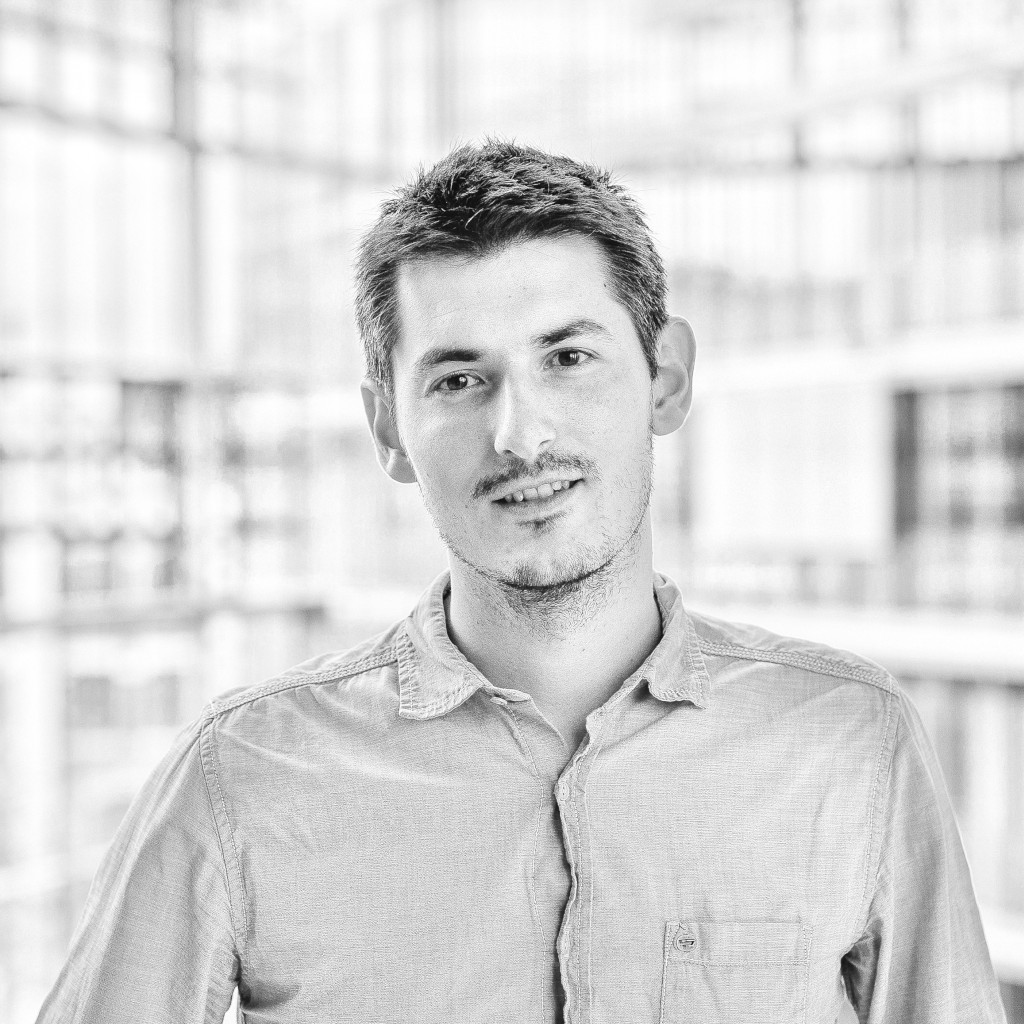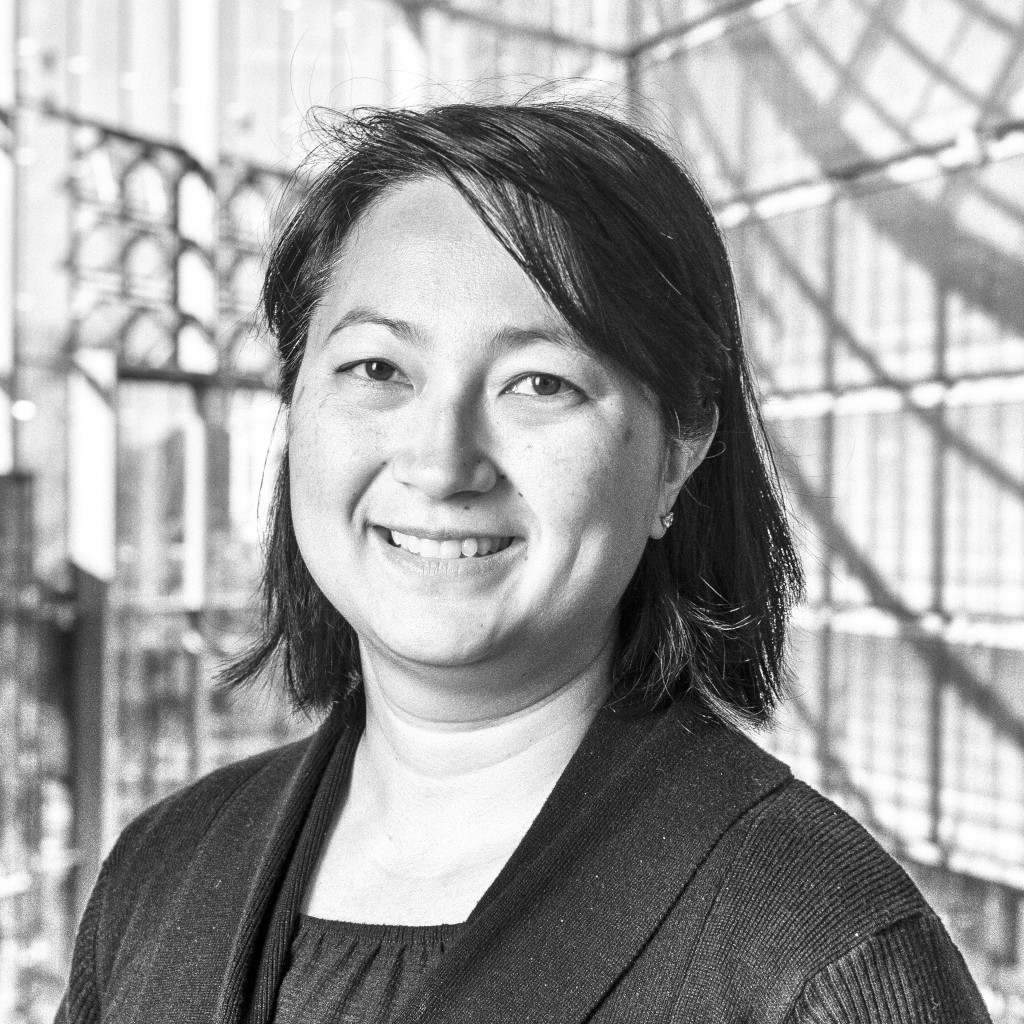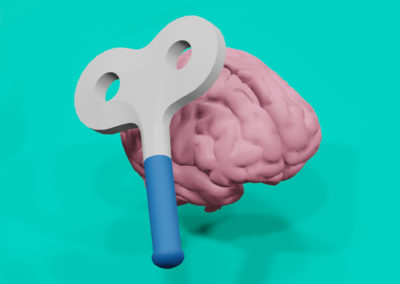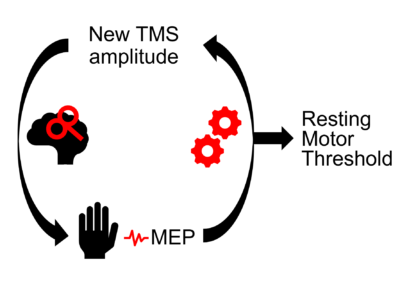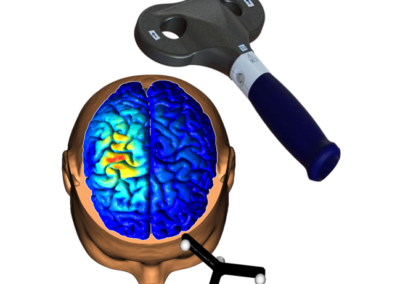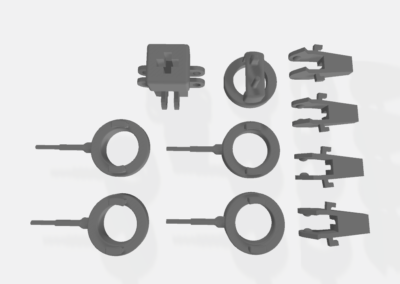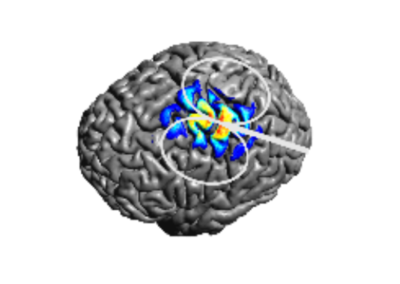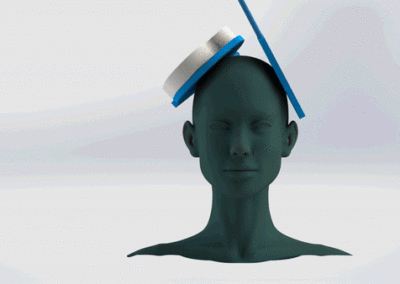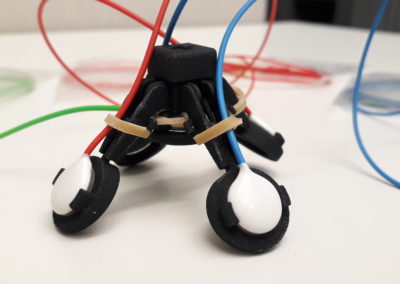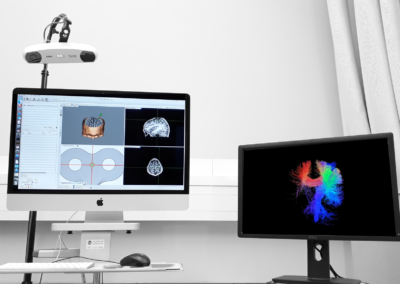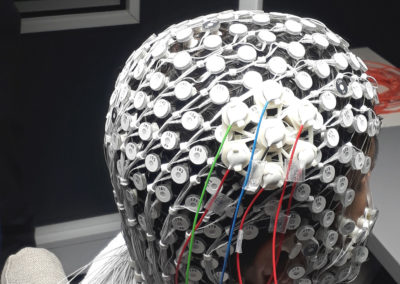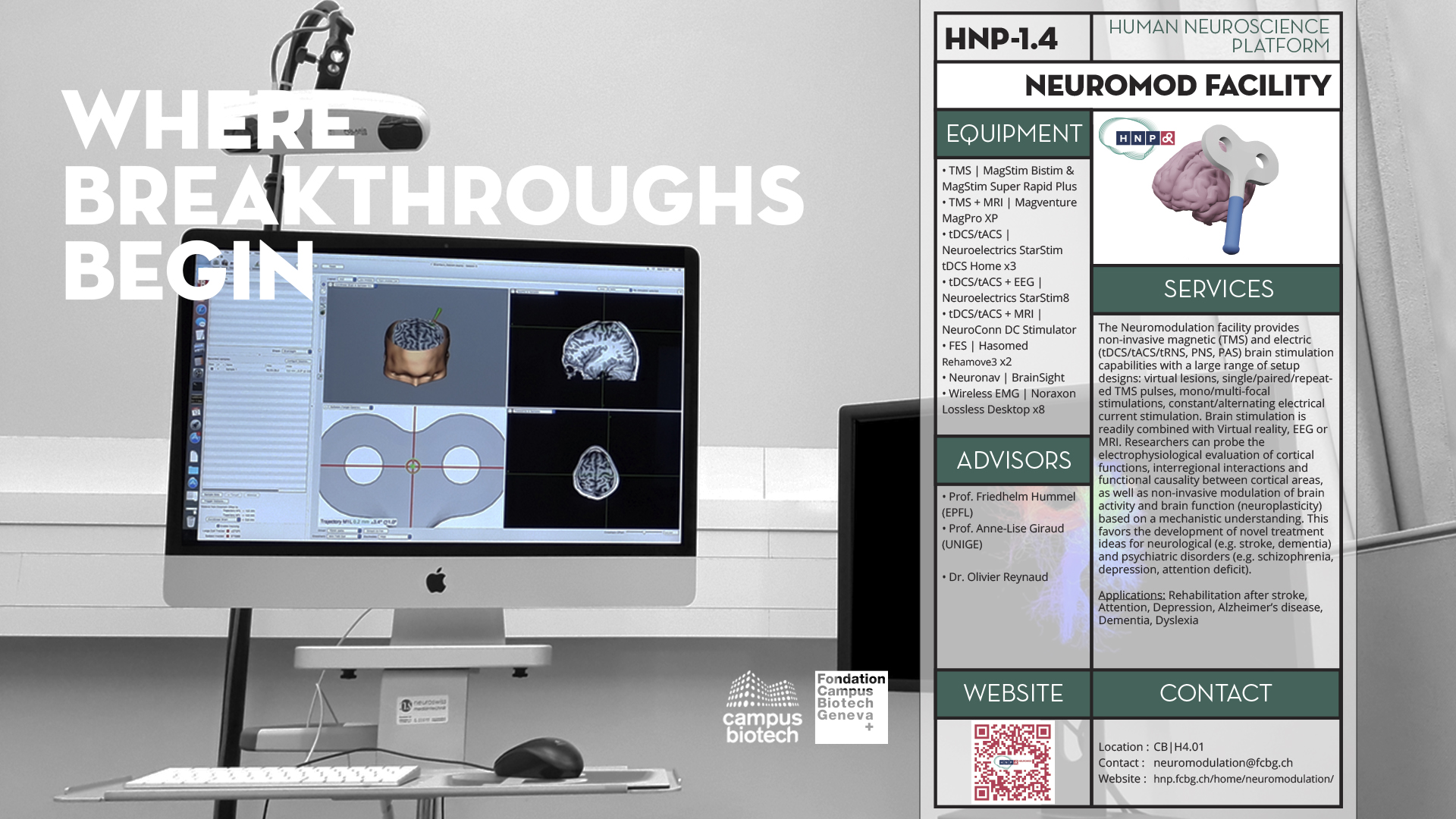
MISSION
The mission of the Neuromodulation facility is to provide non-invasive magnetic (TMS) and electric (tDCS/tACS/tRNS, PNS, PAS) brain stimulation capabilities with the whole spectrum of applications: from virtual lesion approaches, via single and paired pulse mono-focal applications to determine intracortical interactions (e.g., gaba-ergic, glutamate-ergic) and multi-focal applications to determine interregional interactions (e.g., interhemispheric). Long-distance processes can also be probed via spinal / peripheral nerve stimulation (reciprocal inhibition, h-reflexes, nerve conduction times, SEPs…). Besides the electrophysiological evaluation of cortical functions, interregional interactions and functional causality between cortical areas, another promising area of research is non-invasive modulation of brain activity and brain function (neuroplasticity) based on a mechanistic understanding. This area is of particular importance as it allows to study behavioral effects of focal neuromodulation, multifocal neuromodulation based on changing focal cortical excitability, changing oscillatory activity/properties and oscillatory interactions between brain areas with large potential for better understanding of brain network functioning, and for the development of novel treatment ideas for neurological (e.g. stroke, dementia) and psychiatric disorders (e.g. schizophrenia, depression).
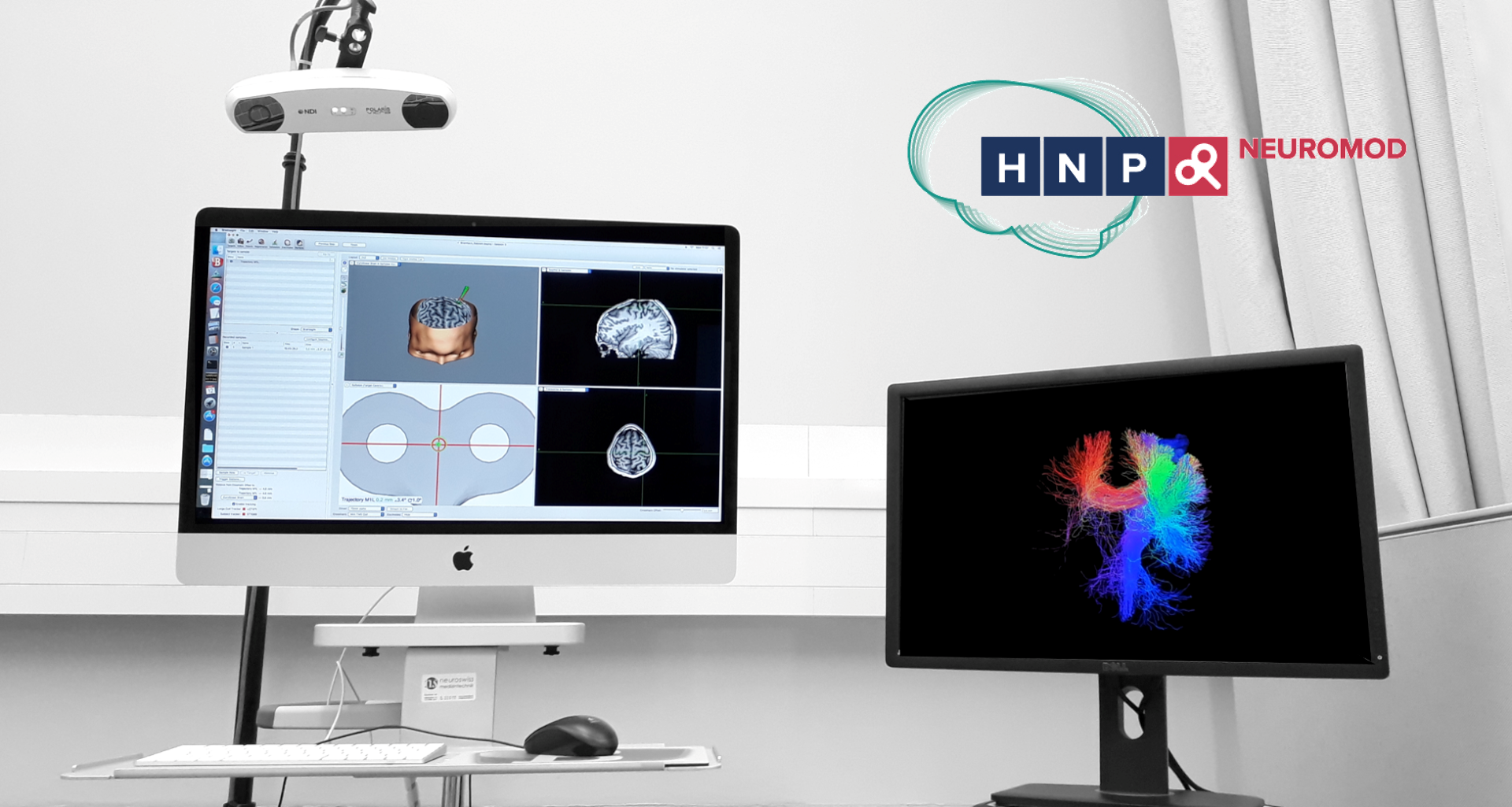
Furthermore, it is crucial to be able to combine these brain stimulation technologies with neuroimaging, such as TMS or TES in the MRI scanner or TMS/TES combined with EEG, to determine the underlying effects of these technologies during the application.
The Campus Biotech provides a unique environment to combine cutting-edge non-invasive brain stimulation techniques with EEG, MRI and/or VR in a sequentially, simultaneously, or interleaved fashion.
Multimodality allows a better in-depth understanding of brain mechanisms and function. Involving imaging during brain stimulation helps to better understand the effects of brain stimulation and their underlying mechanisms, while adding NIBS to conventional functional imaging adds the possibility to address a causality between brain areas and behavioral functions.
MEET THE TEAM
Scientific supervision of the NMOD facility is performed by Prof. Sophie Schwartz (UNIGE) and Prof. Friedhelm Hummel (EPFL).
Dr. Olivier Reynaud is responsible for the facility. Loan Mattera is the Medical Assistant.
EQUIPMENT
An overview of the equipment available for experiments
Click here for the complete list of neuromodulation equipment available at Campus Biotech.
SOME NUMBERS
CURRENT PROJECTS
ENDED PROJECTS
PUBLICATIONS
PROJECTS
A few examples of various projects performed at the Human Neuroscience Platform
CONTACT
Please contact us for specific inquiries, project applications or additional information on the facility.

